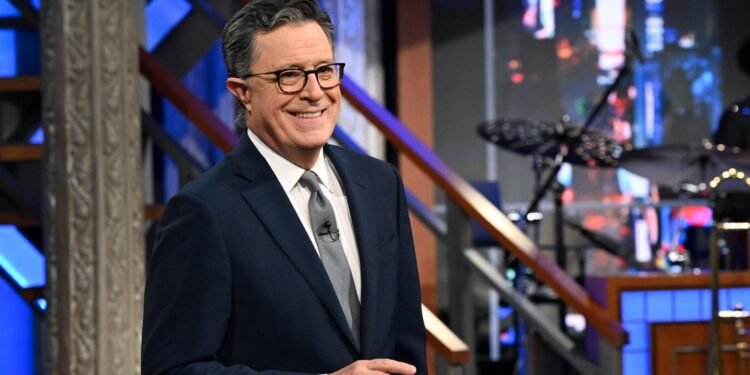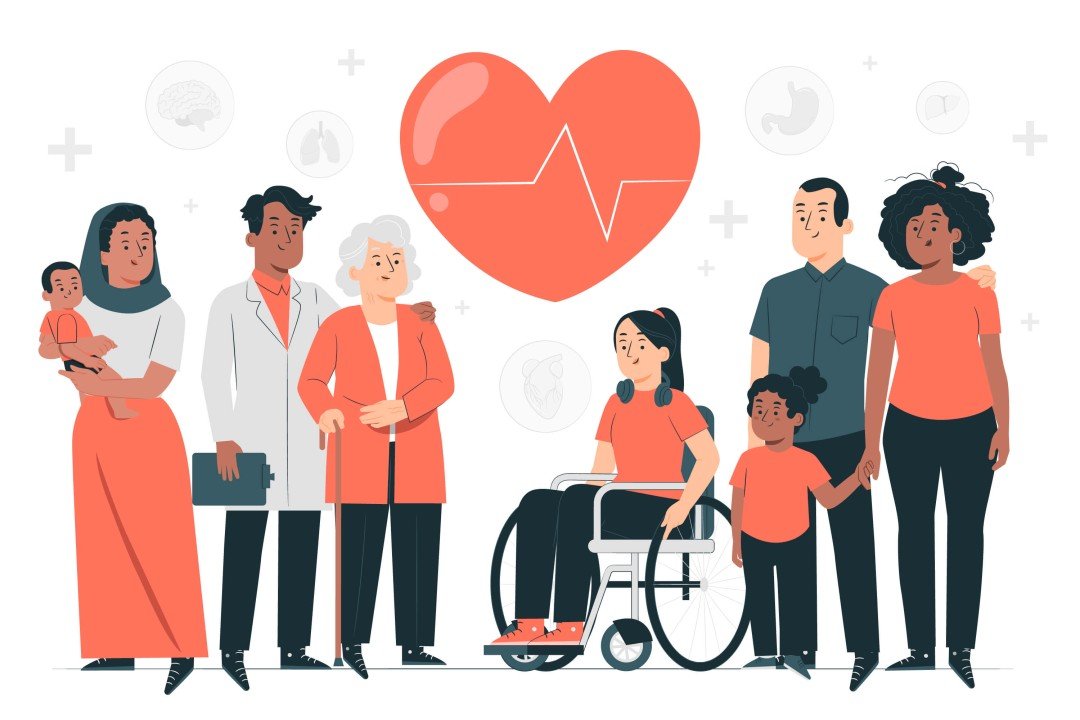Introduction: When Jokes Mean Something More
Let’s be honest — late-night TV isn’t what it used to be. There was a time when millions tuned in every night like clockwork. Now? YouTube clips, TikTok snippets, podcast soundbites. And yet… Stephen Colbert is still standing. Still relevant. Still making people think — and laugh.
He’s not just a host. He’s not just a comedian. He’s not even “just” a political satirist. Colbert has become something rare: a public voice who jokes not because the world is funny, but because it’s painful — and humor is the way through it.
This isn’t about hero worship. Colbert’s not perfect. But if you want to understand why people still listen to him — why clips from The Late Show still trend, why presidents still come to his set, and why viewers still trust him — you have to look past the suit and jokes. You have to see the guy underneath.
1. The Colbert Report Years: Where It All Began
Most people met Stephen Colbert through The Daily Show — back when Jon Stewart ran it like a clever, angry, funny classroom. But it was The Colbert Report that made Stephen famous.
And let’s be real: it was genius.
He played a fake conservative pundit — like Bill O’Reilly on Red Bull — and delivered satire so sharp that some people didn’t even get the joke. That was the point. He blurred the line between parody and reality in a way that forced you to pay attention. Were you laughing with him or at him? Both.
The show ran from 2005 to 2014. And in that time, he roasted Congress, took on super PACs, and somehow managed to testify (in character) before the U.S. House. Who does that?
That version of Colbert — the character — was brilliant. But it wasn’t the full story.
2. Taking Over The Late Show: Dropping the Mask
In 2015, Colbert took over CBS’s The Late Show, replacing David Letterman — a comedy legend in his own right. At first, things were awkward. The old “Colbert character” didn’t fit the new role. The jokes didn’t always land. People weren’t sure what to expect.
And then… Donald Trump happened.
Suddenly, Colbert found his rhythm. The world had gotten weird, loud, and unfunny. But Colbert leaned into it — not by being outrageous, but by being clear-headed. His monologues became must-watch moments. He stopped performing and started talking like a person. Frustrated. Worried. Sharp.
He found his voice — and it wasn’t fake anymore.
3. What Makes Colbert Different (And Why That Matters)
Let’s break it down.
💡 He’s Smart Without Being Snobby
Colbert’s comedy isn’t lowest-common-denominator stuff. He’ll reference Cicero, quote Tolkien, or make a joke about the Supreme Court — all in one segment. But he never talks down to people.
He trusts that you’re smart. That’s rare.
💬 He Balances Anger and Compassion
In a world where everyone’s shouting, Colbert doesn’t just yell. He listens. He gets emotional. He talks about pain — personal and political — without making it a brand. That makes him feel… human.
🎯 He Punches Up
He doesn’t waste time mocking everyday people. His targets? Hypocrisy. Injustice. Authoritarianism. Grift. That’s real satire — not cruelty, but clarity.
4. Colbert’s Personal Life: A Quiet Backbone
Here’s what surprises people: Stephen Colbert is deeply religious. A practicing Catholic. But not the fire-and-brimstone type. More like… the kind type.
He lost his father and two brothers in a plane crash when he was 10. He’s talked about it, quietly. The grief, the confusion, the loneliness. And how faith — mixed with therapy, humor, and reading — helped him make sense of it.
In interviews, he quotes scripture. But not to preach — to connect. He once told Anderson Cooper that suffering is part of life, and that we’re not meant to escape it, but to carry it with love. That interview? Went viral. Not because it was funny. But because it was real.
5. Behind the Scenes: The Writer, the Actor, the Reader
What a lot of people don’t realize is that Colbert is a theatre kid at heart. He studied improv at Second City in Chicago — the same place where Tina Fey, Amy Poehler, and Steve Carell came from.
He writes. He reads. He acts. He plays Dungeons & Dragons. He even has a deep obsession with The Lord of the Rings (seriously — he’s quizzed the cast on trivia and won).
This mix — intellect + nerddom + heart — is what makes his show feel like more than just a comedy program. It feels like hanging out with your weird-smart-funny friend who read three books and still has time to laugh about cat videos.
6. Critics and Controversies: Is He Too Political?
Of course, not everyone loves Colbert. Some say he’s too political. Too anti-Republican. Too “liberal.”
And yeah, he is political. He takes sides. He believes in democracy, facts, vaccines, civil rights. If that’s political now, then so be it.
But here’s the thing: Colbert doesn’t hate people. He hates dishonesty, bigotry, power abuse. That’s not partisanship — that’s decency.
Still, in today’s polarized climate, he’s a target. Some folks say he’s smug. Others call him a moralist. But most viewers? They see someone who cares — even when he’s frustrated.
7. Colbert and the Future of Late Night: What’s Next?
Late-night TV is changing. Jimmy Fallon’s still goofy. Kimmel’s solid. But Gen Z doesn’t watch TV like Boomers or Millennials did.
Colbert’s response? He’s embraced YouTube. His Cold Opens go viral. His interviews get millions of views — even among people who’ve never watched cable.
Will The Late Show survive another 10 years? Who knows. But Colbert? He’ll find a way. Whether it’s streaming, writing, podcasting — his voice isn’t going away.
He’s too good. Too necessary.
FAQs
Q: Is Stephen Colbert really religious or is that just PR?
Yeah, he really is. He talks about faith like a person, not a preacher. He lost family when he was young, and religion helped him deal. Doesn’t shove it in your face — just lives it.
Q: Why do people call him a “truth teller”? Isn’t he just a comedian?
Technically, yes. But sometimes comedians hit harder than politicians. Colbert jokes, but under the joke is a point. He doesn’t lie to make it funny. That’s rare these days.
Q: Is he just another anti-Trump guy?
He is critical of Trump — but that’s not his whole thing. He’s more interested in truth vs. lies than left vs. right. He’s gone after Democrats too when they mess up.
Q: What makes Colbert different from Fallon or Kimmel?
Fallon plays games. Kimmel makes fun of people. Colbert thinks. He listens. He’s funny and thoughtful — like if your college professor could roast you.
Q: Is The Late Show still worth watching?
Yeah. Even if you don’t agree with him. It’s one of the few places where comedy, honesty, and actual thought still happen together. Just… don’t expect TikTok energy.
Q: Will he retire soon?
Doesn’t seem like it. He’s still sharp, still curious, still engaged. When he does leave, it’ll be on his own terms. And yeah, it’ll be a loss.
🧾 Conclusion: Why Colbert Still Matters
Stephen Colbert isn’t everyone’s favorite — and maybe that’s a good thing. He’s not trying to please everyone. He’s trying to be real. And in a world of spin, bots, and noise, real is rare.
He’s a reminder that comedy can be more than a punchline. It can be a flashlight. It can be armor. It can be a hug.
So yeah — in a time when most public voices are either yelling or selling something, Colbert’s just… talking. And listening. And laughing with us.
Maybe that’s why he still matters.
More Read: Movierulz: The Real Story Behind Free Movie Streaming
























